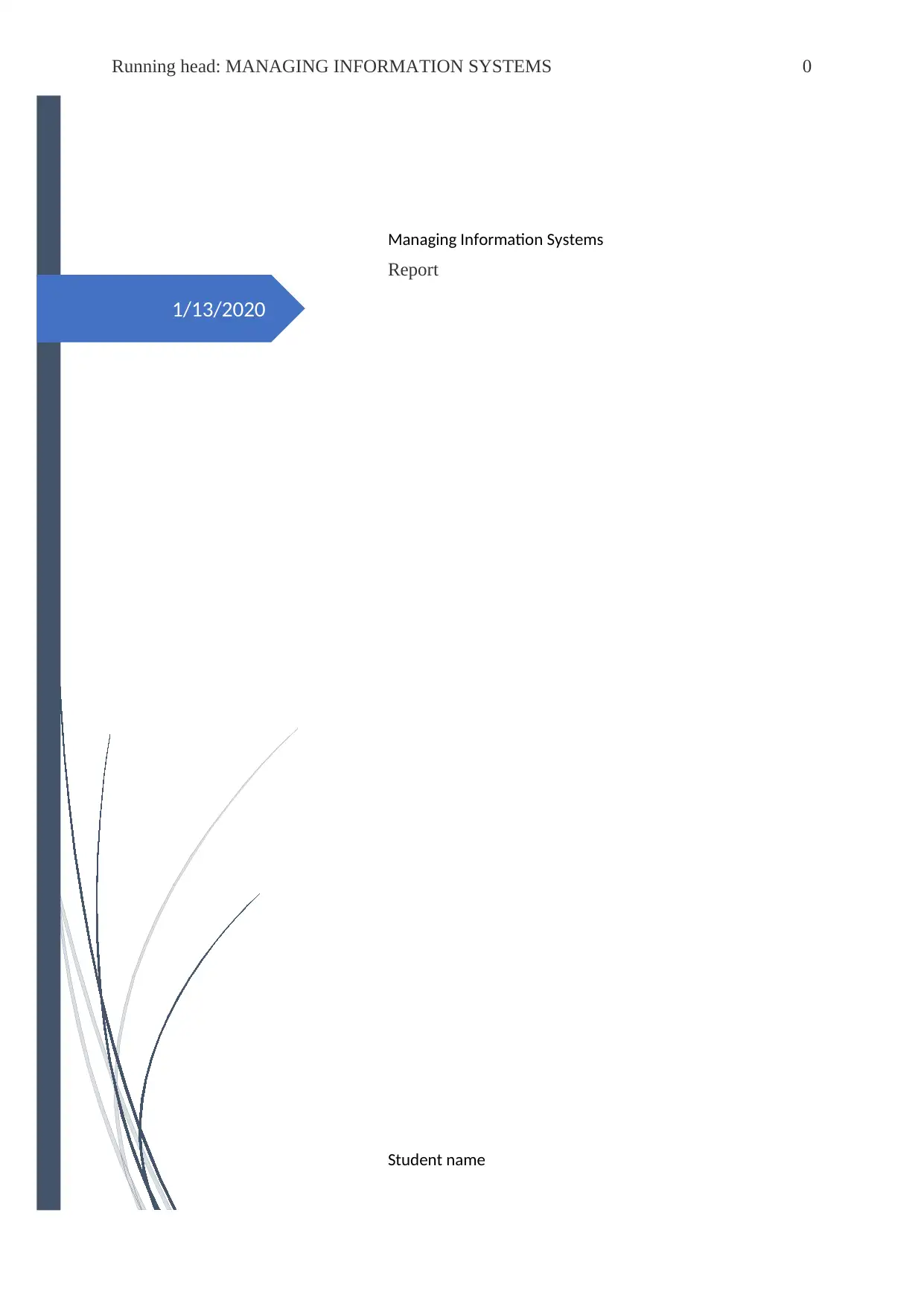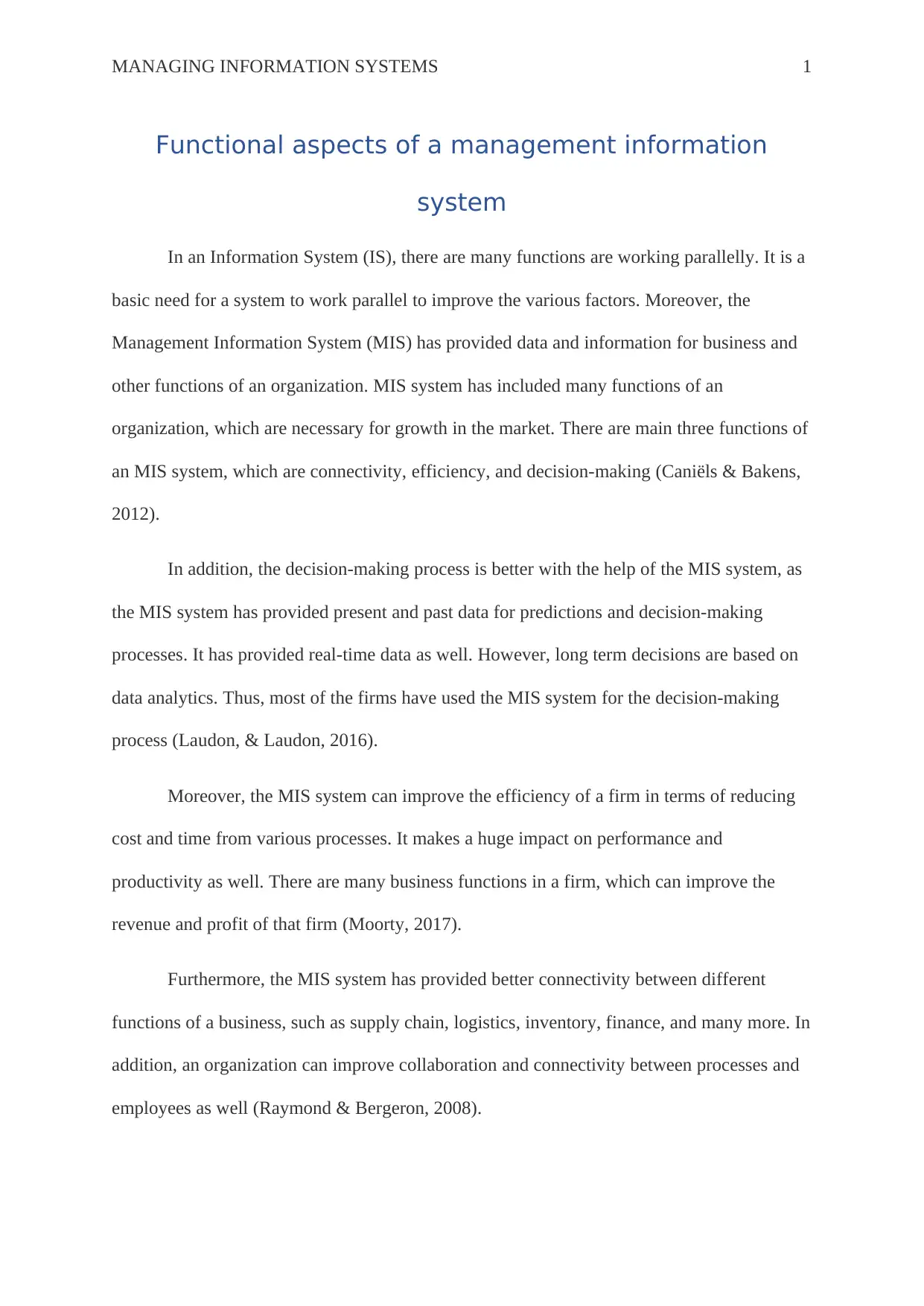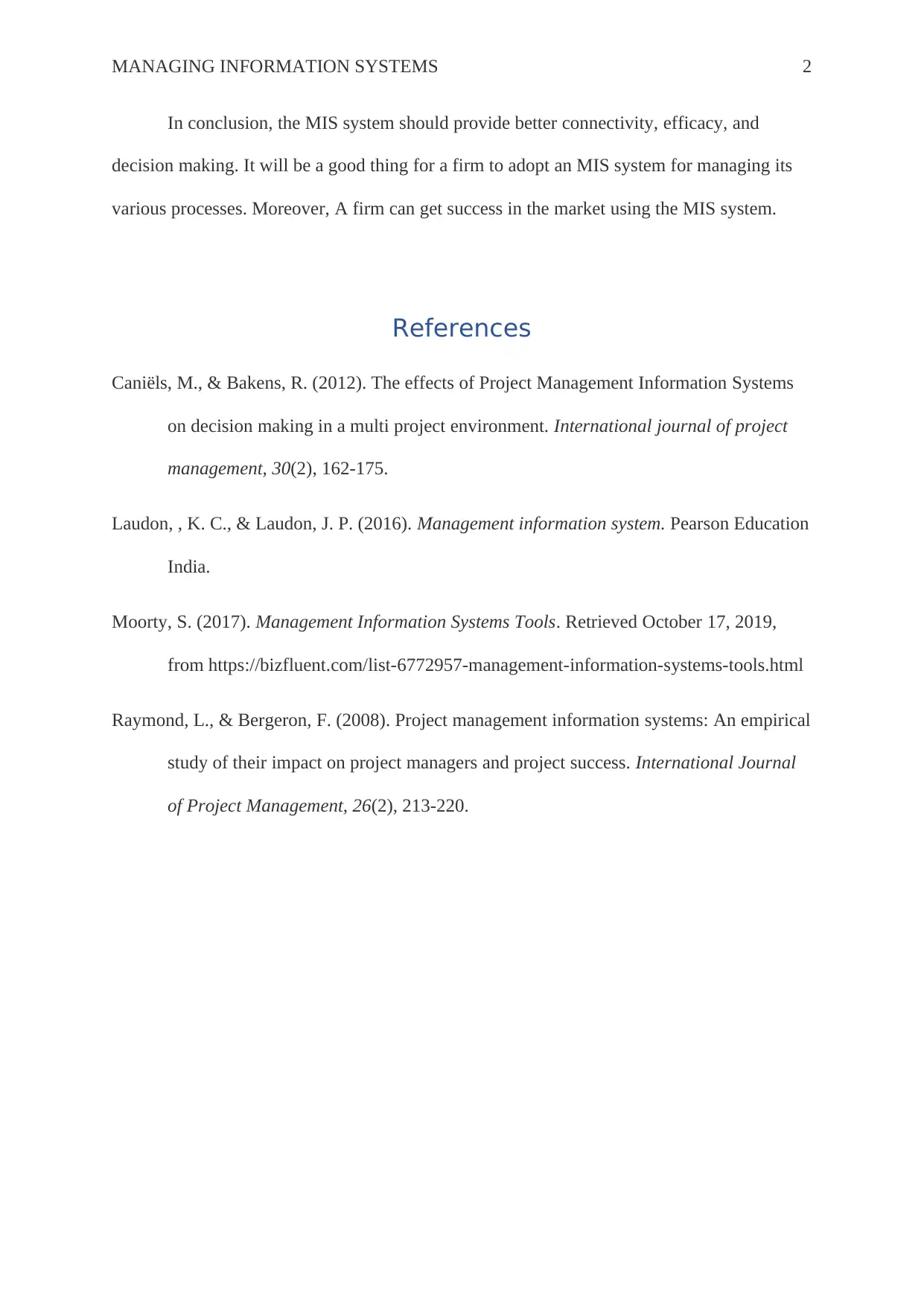Management Information Systems Report: Functional Aspects Analysis
VerifiedAdded on 2022/08/25
|3
|505
|20
Report
AI Summary
This report provides an overview of the functional aspects of Management Information Systems (MIS). It explores how MIS contributes to decision-making, efficiency, and connectivity within an organization. The report highlights the importance of MIS in providing real-time and historical data for informed decision-making, improving operational efficiency, and enhancing collaboration across different business functions such as supply chain, logistics, and finance. The report emphasizes the benefits of adopting an MIS system for managing various business processes and achieving success in the market. The report references various sources to support the arguments and provides insights into the practical applications and impacts of MIS within the business environment.
1 out of 3










![[object Object]](/_next/static/media/star-bottom.7253800d.svg)